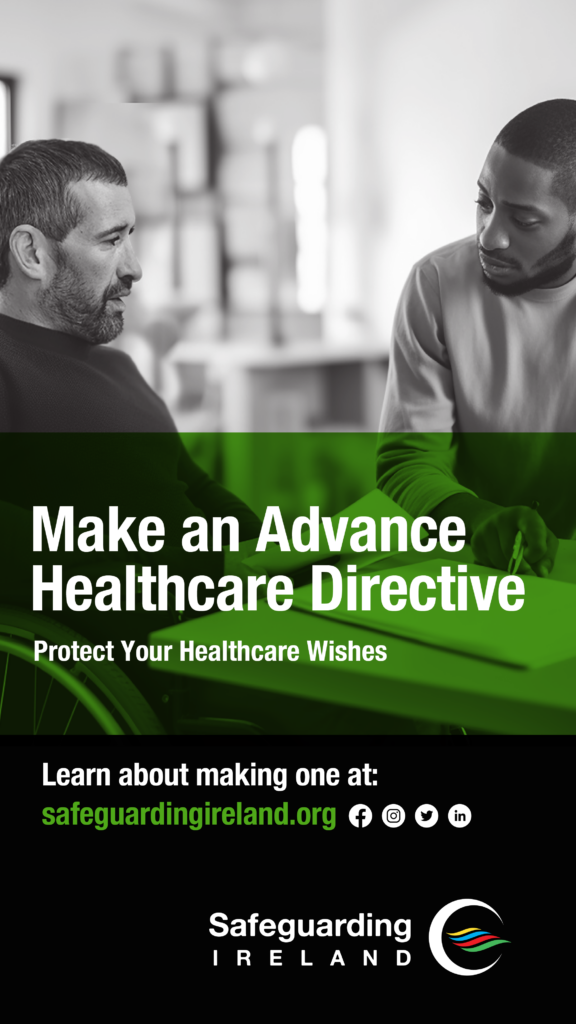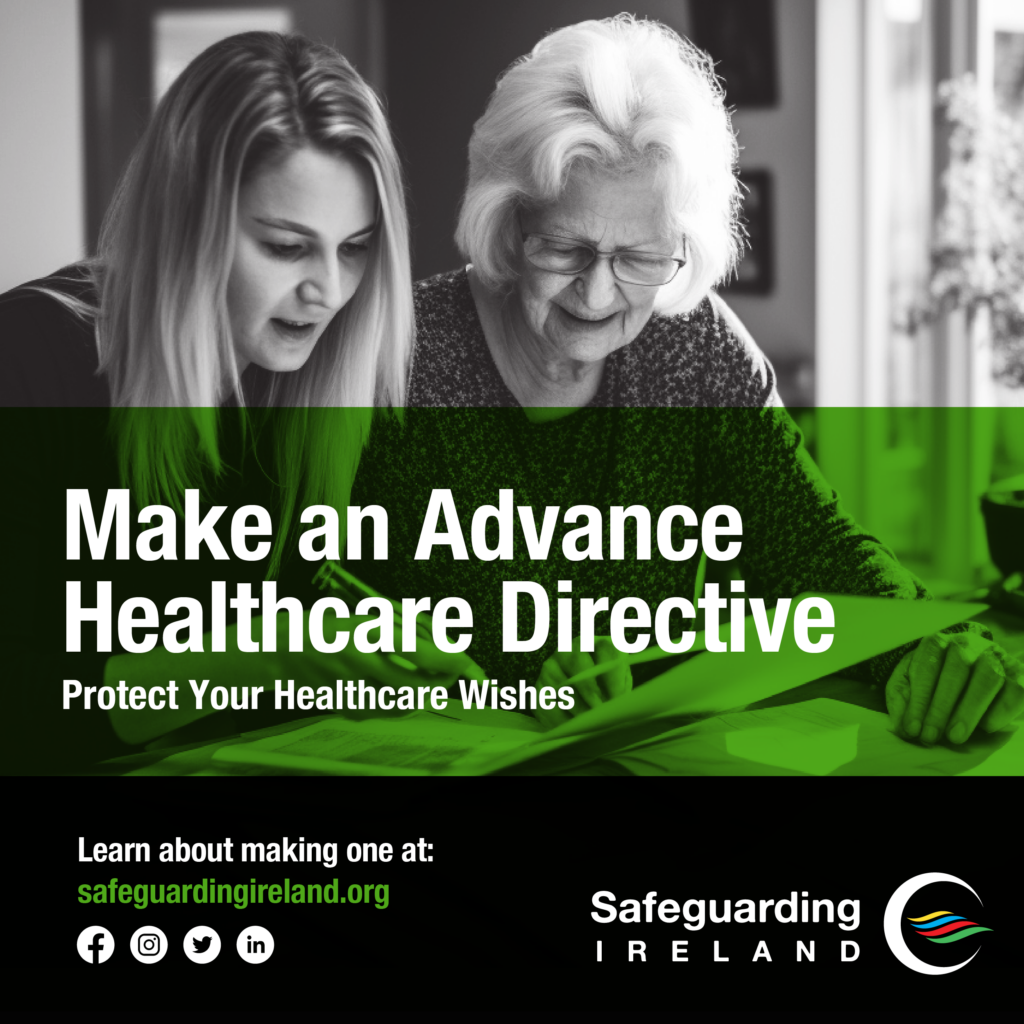Make an Advance Healthcare Directive – 2025
An Advance Healthcare Directive is a document in which you write down your decisions on healthcare treatment, for if in the future you lacked capacity to make or communicate those decisions.
If you continue to have decision-making capacity then your Advance Healthcare Directive would not apply, or come into effect. You would communicate and discuss your healthcare decisions directly with your doctors or nurses.
However, if in the future you were using healthcare services, and didn’t have decision-making capacity to make certain healthcare decisions, then your Advance Healthcare Directive would come into effect.
This could be due to the progression of age related frailty, dementia, a serious illness, a physical or intellectual disability, or a sudden accident.
Having an Advance Healthcare Directive in place would provide a guide for healthcare professionals so that your wishes and preferences on healthcare are known and can be adhered to.
Safeguarding Ireland recommends that all adults, and particularly those using healthcare services or if capacity may become a challenge, make one and share a copy with those who need to know about it.

HOW TO make one
Making an Advance Healthcare Directive is free of charge and not difficult to do.
To make one – Safeguarding Ireland recommends accessing and completing one of the two excellent Advance Healthcare Directive templates available. These which will guide you on what to think about, discuss and include. These are:
Decision Support Service
Think Ahead
WHY make one?
Research carried out by Safeguarding Ireland has found that just 4% of adults have an Advance Healthcare Directive, which is very low by international standards.
Having one is an important part of protecting rights and ensuring that our wishes will be respected, for if in the future we didn’t have decision-making capacity to make certain healthcare decisions.
Having one is also better for doctors and families.
Sometimes people incorrectly think that an available family member, or ‘next of kin’, can step in if needed and make healthcare decisions on another family member’s behalf. This is not the case.
A next of kin can be a contact point for healthcare professionals, but has no authority regarding another person’s healthcare decisions unless appointed as their Designated Healthcare Representative.
The three key parts on your plan:
- Your refusals on life-sustaining treatments, artificial nutrition, surgery, medicines and resuscitation
- Your consents on medical and treatment options, including pain relief and where you would like to be treated
- Appointing someone you choose and trust, called a Designated Healthcare Representative, to ensure the plan is correctly interpreted and complied with.
Once made – healthcare professionals are bound to adhere to your refusals and to make every effort to provide the treatments you would like to receive. Also, there is clarity on who has authority to act on your behalf.
Who needs to know about your Advance Healthcare Directive
Once you have completed your Advance Healthcare Directive you should store it safely. It is also important that those who need to know about it do, and the following people should be given a copy:
- Your Designated / Alternative Healthcare Representatives
- Family Doctor (GP)
- Any relevant healthcare professionals you are dealing with
- The Emergency Department if admitted to hospital
- The person in charge if you live in a healthcare or residential facility.
Research
Radio Ad
Make an Advance Healthcare Directive









